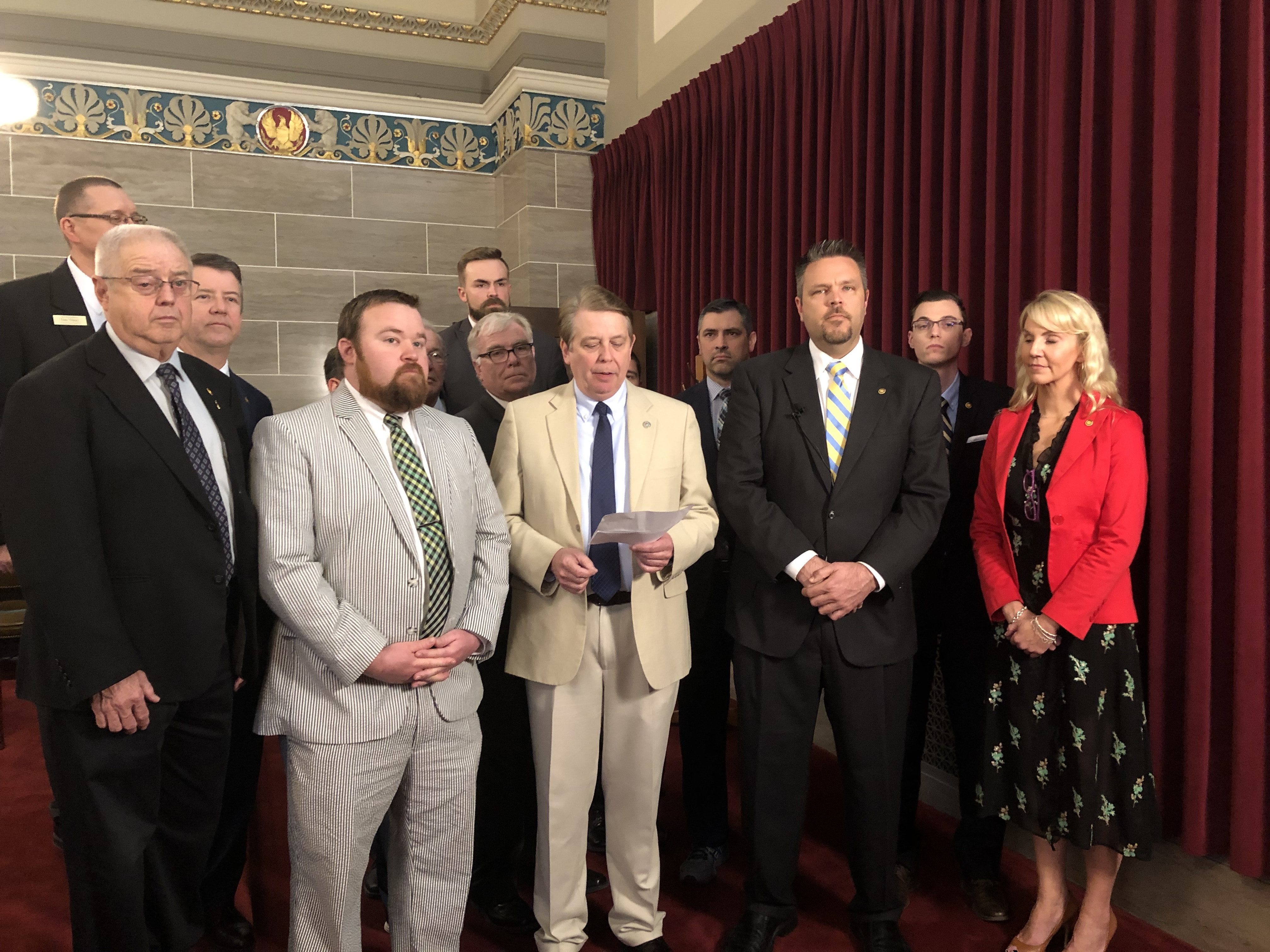JEFFERSON CITY, Mo. — The 40 lawmakers that make up the House Conservative Caucus have endorsed a measure altering how colleges handle sexual assault and misconduct investigations.
“Due process is a constitutionally guaranteed right. Just because someone goes to school doesn’t mean you dismiss your constitutional rights,” Caucus Co-Chairman Justin Hill told the Missouri Times. “So, we felt that was very appealing to the conservative cause. This is the first time we have come together and taken a stance on something and I think it is a very just cause.”
The measure the Republican representatives are backing is HB 573, sponsored by Rep. Dean Dohrman. The bill provides students in higher education due process protections and allows students who have received a disciplinary action in a Title IX case to appeal to the Administrative Hearing Commission.
It is the first bill the House Conservative Caucus has publicly endorsed, though Caucus Co-Chairman Jered Taylor added that it probably isn’t the last time they take a stance on an issue.
“Everyone in the Conservative Caucus takes sexual harassment and assault very seriously,” said Dohrman. “However, we also understand for justice to be achieved, a just process must be in place.”
Dohrman said they had a lot of discussion with multiple stakeholders include colleges, universities, lawyers, victims, students, and partners. Those conversations spurred improvements to the legislation.
During the committee process, Dohrman’s legislation underwent roughly 2 dozen changes.
As amended, the measure still brings a level of uniformity to how cases are handled across the state, gives those involved in cases an outside appeals option with the Administrative Hearing Commission, and requires all relevant information be included in the findings.
Added into the bill were rape-shield protections, a uniformed evidentiary standard across all investigations, a requirement a record be kept of all proceedings, and a provision closing all related proceedings at the Administrative Hearing Commission.
Conversations with stakeholders have continued, with Dohrman mention they are working on an amendment for religious school exemptions.
“We have kept the substance of due process but the procedural aspects, I think, are much more conformed the college campus atmosphere of what we are trying to achieve,” said Dohrman. “HB 573 ensures victims of sexual misconduct will have to turn in their time of need, that the accused have a right to have their story heard, and everyone has the ability to appeal if they believe the process has gone awry.”

Alisha Shurr was a reporter for The Missouri Times and The Missouri Times Magazine. She joined The Missouri Times in January 2018 after working as a copy editor for her hometown newspaper in Southern Oregon. Alisha is a graduate of Kansas State University.








